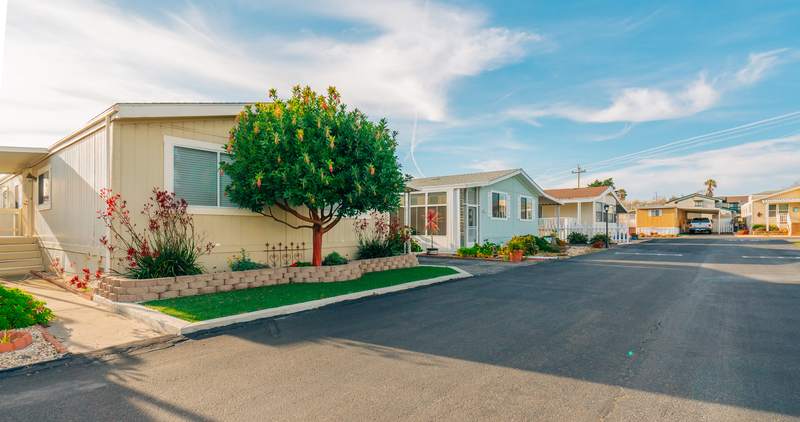New York state and New York City residents usually pay a state mortgage recording tax when refinancing their home. Fortunately, there’s a workaround that can save homeowners money when they refinance: a Consolidation, Extension and Modification Agreement loan.
What Is A CEMA Mortgage Loan?
A CEMA mortgage loan lets you transfer your existing mortgage from your current lender to a new lender and reduces the amount you pay in New York State recording tax.
Instead of paying the mortgage recording tax on the new mortgage loan amount, you pay the difference between the new mortgage loan amount and your existing mortgage balance. A CEMA mortgage loan can significantly reduce refinancing costs because you’re not paying mortgage recording tax on the entire refinance loan amount.
What Is The NY State Mortgage Recording Tax?
When refinancing (or buying) many types of houses in New York, you pay a mortgage recording tax. In some New York counties, the tax is 1% of the refinance loan, but several counties add an extra local tax. In New York City, the mortgage recording tax can vary based on the loan amount. It can be as high as 2.05% for refinance loans under $500,000. For loans of $500,000 or more, the recording tax increases to 2.2%.
The mortgage recording tax applies to home purchases and mortgage refinances. It isn’t a one-time cost. You could end up paying this tax for each future refinance. A CEMA loan is designed to help reduce closing costs and the NY tax burden.
What’s Your Goal?
Buy A Home
Discover mortgage options that fit your unique financial needs.

Refinance
Refinance your mortgage to have more money for what matters.
Tap Into Equity
Use your home’s equity and unlock cash to achieve your goals.
Understanding NY CEMA Costs
CEMA loans have some additional fees that could make them less advantageous. They vary by loan, can range from a few hundred to a few thousand dollars and typically cover CEMA assignment, closing and processing fees.
For example, in New York City, you can use one of two loan options when refinancing a $250,000 mortgage to a $300,000 cash-out refinance:
- Traditional cash-out refinance: With a traditional cash-out refinance, you’ll pay a 2.05% recording tax on the entire refinance amount ($300,000), which equals $6,150.
- CEMA mortgage refinance: With a CEMA mortgage loan, you’ll pay a 2.05% recording tax on the difference between the cash-out refinance amount and your existing loan balance ($300,000 − $250,000 = $50,000), which equals $1,025.
However, CEMA loans aren’t guaranteed to be the most cost-effective option. Your closing costs can vary depending on tax rates, attorney fees and other expenses. Under some circumstances, a traditional refinance may be the less expensive option in the long run.
Let’s say you live in Cortland County, where the recording tax is 1%. You would pay a $3,000 mortgage recording tax for a $300,000 loan. With a CEMA loan, you would pay a $500 tax ($300,000 − $250,000 = $50,000), saving $2,500. If your lender charges an additional 1%, which equals $3,000 in closing costs, it will quickly negate your savings.
While you should always factor in processing fees, most borrowers looking for cost-effective refinancing should consider a CEMA loan to determine whether it would benefit them.
Ready To Refinance?
Get matched with a lender that can help you reach your financial goals.
CEMA Mortgage Loan Requirements
You must be a New York State resident to qualify for a CEMA loan – and meet other CEMA mortgage requirements:
- Eligible loan type: CEMA loans are only available to refinance conventional, Federal Housing Administration (FHA) and jumbo loans. (Purchase CEMA loans are rare.)
- Eligible housing type: Most types of houses and living situations can qualify for a CEMA loan, except for co-ops. New York State doesn’t collect mortgage recording tax on co-ops because co-op shares aren’t considered real estate.
View Your Refinancing Options
Find a refinance lender that will work with your unique financial situation.
What Are The Pros And Cons Of CEMA Loans?
Now that you know what CEMA is in NY, it’s time to decide whether the loan aligns with your refinancing goals. Every loan type has advantages and disadvantages. Here’s what you should consider before moving forward with a CEMA loan:
Pros
A CEMA loan can come with these benefits:
- Save money when refinancing: Owning real estate in New York State is notably expensive. One of the most attractive benefits of a CEMA loan is reducing the mortgage recording tax burden.
- Maintain benefits of refinancing: You can tap into a lower interest rate and reduce closing costs with a CEMA loan.
Cons
Unfortunately, you may experience these drawbacks as well:
- Slower approval process: Obtaining a CEMA loan may require approvals from New York State and your lender to ensure the mortgage and title transfers comply with CEMA regulations. Considering the layers of approval, a CEMA refinance may take 60 – 90 days to close.
- Harder to find a lender: Finding a lender that offers a CEMA refinance can be challenging. Ask your current lender whether they offer CEMA loans. If not, shop around for a new lender.
Alternatives To A CEMA Loan
Considering other options to reduce or avoid the New York State mortgage recording tax may be worthwhile, depending on your reasons for refinancing.
Accessing Home Equity
A home equity loan or home equity line of credit (HELOC) may be a better option than a cash-out refinance to access your home equity. However, home equity loans tend to have higher rates. You’ll need to weigh the savings on closing costs against the long-term cost of borrowing.
Paying Off Your Mortgage Sooner
Consider a mortgage recast if you want to adjust your loan terms to own your home outright sooner. You’ll make a lump-sum payment toward your principal mortgage balance that will reduce your monthly payments and help you pay down your loan without refinancing.
Lower Your Monthly Mortgage Payment
If you want to reduce your monthly mortgage payment but don’t want to refinance, try talking to your lender about a loan modification agreement. With a modification, you agree to keep your current mortgage, and your lender agrees to adjust the loan’s repayment term or interest rate. Not all lenders offer loan modification, but it never hurts to ask.
The Bottom Line
If you’re a New York State resident considering a refinance, a CEMA mortgage can be a valuable option. While it may take longer than a traditional refinance, it could save you thousands.

Sarah Sharkey
Sarah Sharkey is a personal finance writer who enjoys diving into the details to help readers make savvy financial decisions. She’s covered mortgages, money management, insurance, budgeting and more. She lives in Florida with her husband and dog. When she's not writing, she's outside exploring the coast. You can connect with her on LinkedIn.












